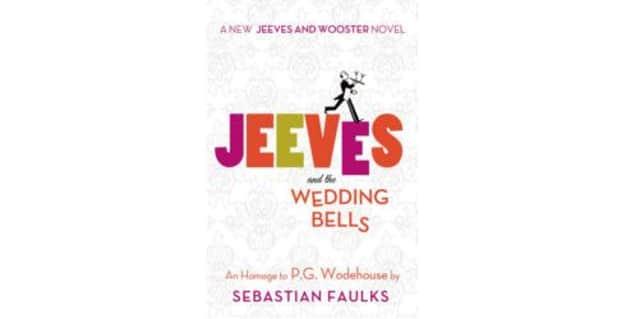Book review: Jeeves And The Wedding Bells


Jeeves And The Wedding Bells
by Sebastian Faulks
Hutchinson, 259pp, £16.99
Well, of course, the comparison no longer holds. We are accustomed now to women preaching, and some of them do it no worse than many male parsons. Nevertheless, news that Sebastian Faulks had been commissioned to write a Jeeves-and-Wooster novel must have brought Johnson’s words to many minds.
Faulks is a very accomplished novelist, who has also written very good sense on the subject of fiction, and he is evidently a devoted Wodehousean, modestly describing this book as an act of homage to the Master. Yet the dog on his hind legs is unavoidably in view, even if, such is Faulks’s skill, it is an accomplished circus dog, a clever and well-trained poodle.
Advertisement
Hide AdThe plot is adequate. This is important. Some Wodehouse devotees were surprised to learn from his published letters how much importance he attached to getting the plot right, how indeed he sweated over it, and how often he complained that he was in unsuccessful search of a plot. The surprise was natural, for few of us read Wodehouse for the story. Nevertheless he was right to attach importance to it, and the magazines for which he wrote and in which most of his early work appeared insisted on having a story. Moreover, his years of working in the theatre, writing musical comedies, had convinced him that even the best song must advance or illuminate the action.
So Faulks is right to give us an elaborate and well-constructed plot which involves Bertie and Jeeves switching roles for its purpose. I am less happy with its conclusion, which, while neat and credible in the context of the novel he has written, seems to upset the Wodehousean apple-cart, sending the fruit flying in quite the wrong direction.
Evelyn Waugh, the most devoted of admirers, remarked that “much of Mr Wodehouse’s humour is allusive in a peculiarly subtle way; it depends on the differences between contemporary spoken English and his own version of it.” This was an acute observation; it makes one realise that no writer today – not even one as deft as Faulks – can do better than offer a pale pastiche.
Our language has now moved so far away from that of Wodehouse’s time, that the gulf between it and Wodehouse’s own version of contemporary spoken English is unbridgeable; and indeed this was evident in the Master’s last books.
Wodehouse’s own world of course never existed – his characters, as Waugh remarked “are purely and essentially literary creations … they live in their own universe like the characters of a fairy story.” Faulks makes the occasional mistake of letting the real world in. It’s well known now, for instance, that Wodehouse took the name of Jeeves from a Warwickshire cricketer who was killed on the Somme in 1916. He would certainly never have allowed mention of the cricketer and his death in battle in any novel. But Faulks, eager perhaps to show himself well versed in the lore, does this, has Jeeves declare that the dead cricketer was a cousin. This is a grave error of taste. It lets a nasty whiff of the harsh real world into Arcadia.
In general, Faulks is conscientious. There is, however, the occasional mistake. Bertie’s terrifying Aunt Agatha would never have sent him a telegram beginning, “WOULD BE GRATEFUL USE OF YOUR SPARE ROOM WEDNESDAY FOR FIVE DAYS”. She would have commandeered it, without thought of gratitude. Admittedly it is later revealed that Jeeves himself sent the wire for good reasons, but this actually confounds the error; Jeeves would certainly have known better.
Advertisement
Hide AdIt’s evident that Faulks has enjoyed writing his homage and it’s likely that many people will enjoy reading it. It still seems unnecessary. One can understand why new Bond books get written; Bond is a commercial brand. But imitating Wodehouse is another matter – even if that imitation may be a sincere form of flattery.
Never mind: one can always return to Right Ho! Jeeves, The Code of the Woosters and Joy in the Morning, and find happiness there.